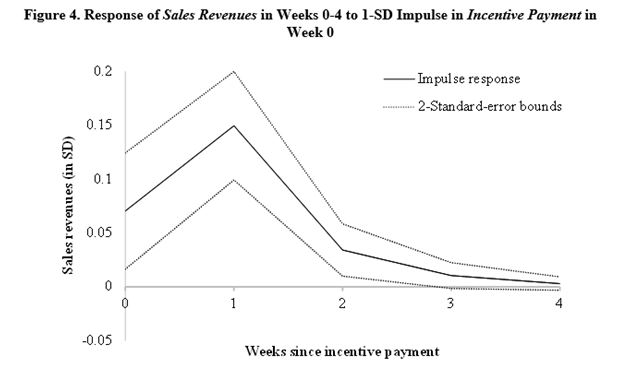Offering financial incentives may motivate staff to perform better at work, new study finds
Research says employees may be more motivated to work after receiving a bonus because they want to reciprocate a feeling of good will.
Employees may perform better at work just after they receive a financial incentive from their employer, new research has found.
The study, co-authored by Bayes Business School (formerly Cass), found that individuals who received a financial reward for their performance in incentivised tasks temporarily put more effort into unincentivised tasks.
This is because of factors including workers being motivated to attend to the broader needs of the organisation, as an act of reciprocity, even if such tasks do not bring them immediate returns.
The research comes shortly after one of the UK’s leading jobs and careers sites found that one in four UK workers are considering leaving their current job within the next 12 months, with 29 per cent citing the wish for an increased salary as a central reason for the decision. Additionally, 34 per cent cited a sense of not being valued as the reason they wanted to leave.
Previous research had found that employees’ performance level is greater when working under incentive plans as opposed to working for their base salary. However, this study shows that productivity may not only be boosted because employees believe their efforts will generate rewards in the future, but because they feel a sense of affinity with the organisation.
Dr Hans Frankort said employers gain to benefit from the research, in particular how garnering a more consistent level of motivation among their workers by developing a better understanding of how employee performance fluctuates in response to incentive payments.
The study can also inform the best timing for alternative motivators, such as informal feedback or commitment-building activities, in the period after an employee receives an incentive payment.
Dr Frankort, Reader in Strategy at Bayes, said: “This research shows that after payment, employees temporarily seem to put more effort into unincentivized tasks. This may be because they not only anticipate future incentive payments but because they are responding positively having received the payment.
“The employee responses to periodic incentive payments explain about 2 per cent of total turnover, which is a lot for a behavioural effect. These findings are of interest to employees, who can use such insight by timing other motivators during periods removed from the moment of incentive payment.
“The research is also counter to previous studies that suggest that because employees know in advance how much their effort will be worth under transparent systems, the reward they receive should not be a surprise and therefore should not result in a temporary increase in performance.”
Beyond Reward Expectancy: How Do Periodic Incentive Payments Influence the Temporal Dynamics of Performance? By Dr Hans Frankort, Reader in Strategy at Bayes Business School, and Dr Argyro Avgoustaki, Professor of Management at ESCP Business School, is published in the Journal of Management.
Ends
Notes to editors
- The findings were compiled from weekly performance surrounding the weeks in which incentive payments took place, aggregated across 169 weeks from January 3, 2011, to March 30, 2014.
- The study collected data from WebCo (a pseudonym), a private Greek online
firm offering web hosting and domain name registration services to more than 60,000 customers across more than 100 countries. WebCo is one of the leading domain name registrars in Greece, employing between 20 and 35 individuals during the sampling window. Because around 95 per cent of all European firms in this industry employed fewer than 10, and 99 per cent fewer than 50, employees (Eurostat, 2014), WebCo is large among its peers. - The below figure offers a visual representation of how effort spikes in the immediate aftermath of receiving an incentive payment.

